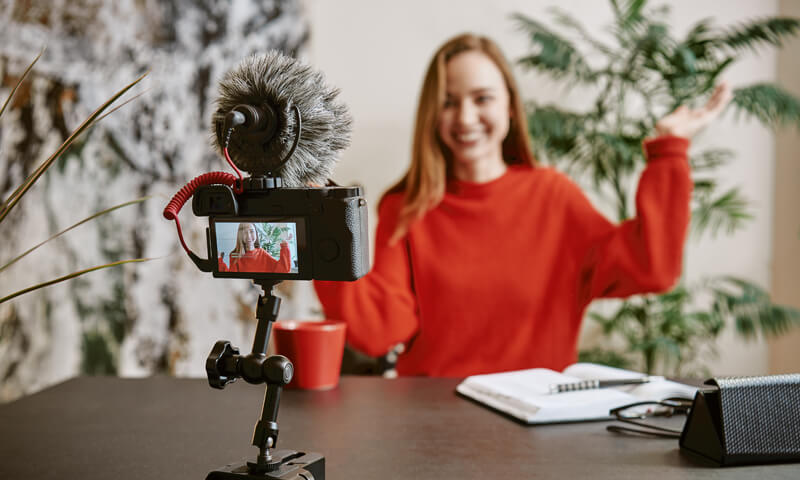
It is elementary that once you have your interview schedule, you should find out as much as possible about the attorneys with whom you will be meeting. At a minimum, you should review their biographies on their firm website. You can supplement this basic research by doing an internet search in order to find out more information (e.g. articles, speaking engagements, recent newsworthy cases or transactions, philanthropic activities, community involvement, etc.) The internet is a wonderful tool so use it! Assuming that you have completed this non-negotiable and extremely important preparation for your interview, how do you use all your hard work in a seamless and natural way in order to succeed on your interview?
I wish I had an easy answer, but unfortunately I do not, as every interview is a unique odyssey; and you may or may not be able to effortlessly (or at least seemingly effortlessly) interject your interviewer’s latest triumph into the conversation. Often candidates are too eager to demonstrate they that have done their research; and while I am sympathetic to their desire to “show” what they know, an awkward soliloquy about your interviewer’s background is not conducive to a lively exchange of ideas (i.e. a good interview!) It is far better to play it cool and ask general questions your interviewer’s practice. (E.g. “It is my understanding that you focus primarily on white collar defense, and I am wondering about the types of cases you are handling presently?) As your interviewer begins to regale you with war stories about his practice, you might find an opportunity to reference the fact that you are aware of a particular case because you – like him – work in the white collar defense realm and share his interests and passions.
- See Top Ten Interview Questions for more information
If you are bound and determined to work in the fact that you have done your research (and are not willing to hope that the opportunity arises organically), then please know that there are ways to do it that are on the opposite end of the spectrum from the awkward soliloquy! For example, if you regularly write articles or serve on panels and you know that your interviewer does too, then you could reference this common ground in a way that is leading somewhere and is not just a recitation of your research. For example, you could say “I noticed when I was preparing for our meeting that you often serve on panels discussing recent developments in real estate. I often serve on panels too, and I am wondering – as a new lawyer - how serving on panels has enhanced your career?” What a great question! You will not only get some valuable career advice for free, but you will have demonstrated that you did your research and have something in common with your interviewer. It is critical that any direct references to your interviewer’s background are phrased in a way that will engender an animated response from your interviewer, not create an uncomfortable silence!
Learn why attorneys usually fail law firm phone-screening interviews in this article:
However, please remember that regardless of whether you are able to casually reference your interviewer’s most recent quote in the Wall Street Journal, knowing as much as possible about your interviewer will inform every aspect of your interaction in a positive way. Never forget that knowledge is power and the more you know about your interviewer, the more likely it is that you will succeed on your interview!
- See Interviewing Tips for more information
About Harrison Barnes
Harrison Barnes is a prominent figure in the legal placement industry, known for his expertise in attorney placements and his extensive knowledge of the legal profession.
With over 25 years of experience, he has established himself as a leading voice in the field and has helped thousands of lawyers and law students find their ideal career paths.
Barnes is a former federal law clerk and associate at Quinn Emanuel and a graduate of the University of Chicago College and the University of Virginia Law School. He was a Rhodes Scholar Finalist at the University of Chicago and a member of the University of Virginia Law Review. Early in his legal career, he enrolled in Stanford Business School but dropped out because he missed legal recruiting too much.
Barnes' approach to the legal industry is rooted in his commitment to helping lawyers achieve their full potential. He believes that the key to success in the legal profession is to be proactive, persistent, and disciplined in one's approach to work and life. He encourages lawyers to take ownership of their careers and to focus on developing their skills and expertise in a way that aligns with their passions and interests.
One of how Barnes provides support to lawyers is through his writing. On his blog, HarrisonBarnes.com, and BCGSearch.com, he regularly shares his insights and advice on a range of topics related to the legal profession. Through his writing, he aims to empower lawyers to control their careers and make informed decisions about their professional development.
One of Barnes's fundamental philosophies in his writing is the importance of networking. He believes that networking is a critical component of career success and that it is essential for lawyers to establish relationships with others in their field. He encourages lawyers to attend events, join organizations, and connect with others in the legal community to build their professional networks.
Another central theme in Barnes' writing is the importance of personal and professional development. He believes that lawyers should continuously strive to improve themselves and develop their skills to succeed in their careers. He encourages lawyers to pursue ongoing education and training actively, read widely, and seek new opportunities for growth and development.
In addition to his work in the legal industry, Barnes is also a fitness and lifestyle enthusiast. He sees fitness and wellness as integral to his personal and professional development and encourages others to adopt a similar mindset. He starts his day at 4:00 am and dedicates several daily hours to running, weightlifting, and pursuing spiritual disciplines.
Finally, Barnes is a strong advocate for community service and giving back. He volunteers for the University of Chicago, where he is the former area chair of Los Angeles for the University of Chicago Admissions Office. He also serves as the President of the Young Presidents Organization's Century City Los Angeles Chapter, where he works to support and connect young business leaders.
In conclusion, Harrison Barnes is a visionary legal industry leader committed to helping lawyers achieve their full potential. Through his work at BCG Attorney Search, writing, and community involvement, he empowers lawyers to take control of their careers, develop their skills continuously, and lead fulfilling and successful lives. His philosophy of being proactive, persistent, and disciplined, combined with his focus on personal and professional development, makes him a valuable resource for anyone looking to succeed in the legal profession.
About BCG Attorney Search
BCG Attorney Search matches attorneys and law firms with unparalleled expertise and drive, while achieving results. Known globally for its success in locating and placing attorneys in law firms of all sizes, BCG Attorney Search has placed thousands of attorneys in law firms in thousands of different law firms around the country. Unlike other legal placement firms, BCG Attorney Search brings massive resources of over 150 employees to its placement efforts locating positions and opportunities its competitors simply cannot. Every legal recruiter at BCG Attorney Search is a former successful attorney who attended a top law school, worked in top law firms and brought massive drive and commitment to their work. BCG Attorney Search legal recruiters take your legal career seriously and understand attorneys. For more information, please visit www.BCGSearch.com.
Harrison Barnes does a weekly free webinar with live Q&A for attorneys and law students each Wednesday at 10:00 am PST. You can attend anonymously and ask questions about your career, this article, or any other legal career-related topics. You can sign up for the weekly webinar here: Register on Zoom
Harrison also does a weekly free webinar with live Q&A for law firms, companies, and others who hire attorneys each Wednesday at 10:00 am PST. You can sign up for the weekly webinar here: Register on Zoom
You can browse a list of past webinars here: Webinar Replays
You can also listen to Harrison Barnes Podcasts here: Attorney Career Advice Podcasts
You can also read Harrison Barnes' articles and books here: Harrison's Perspectives
Harrison Barnes is the legal profession's mentor and may be the only person in your legal career who will tell you why you are not reaching your full potential and what you really need to do to grow as an attorney--regardless of how much it hurts. If you prefer truth to stagnation, growth to comfort, and actionable ideas instead of fluffy concepts, you and Harrison will get along just fine. If, however, you want to stay where you are, talk about your past successes, and feel comfortable, Harrison is not for you.
Truly great mentors are like parents, doctors, therapists, spiritual figures, and others because in order to help you they need to expose you to pain and expose your weaknesses. But suppose you act on the advice and pain created by a mentor. In that case, you will become better: a better attorney, better employees, a better boss, know where you are going, and appreciate where you have been--you will hopefully also become a happier and better person. As you learn from Harrison, he hopes he will become your mentor.
To read more career and life advice articles visit Harrison's personal blog.





